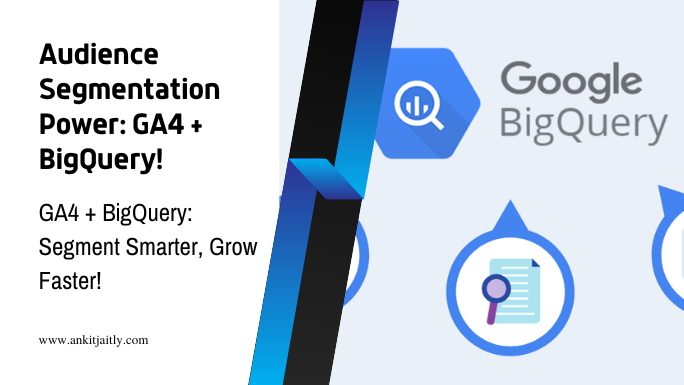Utilizing the powerful integration of Google Analytics 4 and BigQuery can revolutionize the way businesses approach audience segmentation. By combining the advanced data collection capabilities of Google Analytics 4 with the robust analysis and querying capabilities of BigQuery, businesses can gain deeper and more comprehensive insights into their audience than ever before. This integration allows companies to more effectively create personas, identify trends, and understand the behaviors of their audience segments in real-time, ultimately leading to more targeted and successful marketing efforts.
Understanding the Basics
Before diving into the specifics of how Google Analytics 4 and BigQuery can be combined for audience segmentation, it’s important to understand the fundamentals of audience segmentation and how it can benefit your business. Audience segmentation is the process of dividing a larger audience into smaller, more targeted groups based on specific characteristics or behaviors. By doing so, businesses can create more personalized and targeted marketing strategies, leading to higher engagement and conversions.
// Example of audience segmentation in Google Analytics 4
gtag('event', 'login', {
'method': 'Google'
});
Types of Audience Segmentation
There are several types of audience segmentation that businesses can utilize, including demographic segmentation, psychographic segmentation, behavioral segmentation, and geographic segmentation. Each type focuses on different aspects of the audience, allowing businesses to tailor their marketing efforts accordingly.
- Demographic segmentation: Age, gender, income, education level
- Psychographic segmentation: Lifestyle, values, interests
- Behavioral segmentation: Purchasing behavior, brand interactions
- Geographic segmentation: Location, climate, population density
Knowing the specific characteristics and behaviors of your audience is crucial for effective segmentation and targeting.
// Example of demographic segmentation in Google Analytics 4
gtag('set', { 'user_id': 'USER_ID' });
Google Analytics 4 Features for Segmentation
Understanding the features of Google Analytics 4 is essential for effective audience segmentation. With the new Google Analytics 4, businesses gain access to enhanced measurement capabilities, cross-platform tracking, AI-powered insights, and event-driven data collection. These features provide more comprehensive and accurate data for audience segmentation and analysis, ultimately leading to better decision-making.
// Example of event-driven data collection in Google Analytics 4
gtag('event', 'purchase', {
'items': [{
'id': 'P12345',
'name': 'Product Name',
'category': 'Product Category',
'quantity': 1
}]
});
Segmentation in Google Analytics 4 allows businesses to identify and target specific user groups based on their interactions and behaviors on various platforms, providing a deeper understanding of their audience and their preferences.
BigQuery Advantages for Data Analysis
To fully leverage the power of audience segmentation, businesses can tap into the advantages of BigQuery for data analysis. BigQuery offers scalability, real-time analytics, SQL-friendly queries, and data warehousing capabilities. These features enable businesses to handle large volumes of data and extract valuable insights for audience segmentation and targeted marketing campaigns.
// Example of SQL-friendly query in BigQuery
SELECT
COUNT(*) as total_users
FROM
`project_id.dataset.table`
WHERE
last_activity_date > '2022-01-01';
Features of BigQuery ensure that businesses can efficiently process and analyze data to identify patterns, trends, and correlations within their audience segments, ultimately leading to more effective marketing strategies and campaigns.
Setting Up the Integration
Clearly, in order to combine Google Analytics 4 with BigQuery for audience segmentation, the first step is to set up the integration between these two powerful tools. This integration allows you to export your Google Analytics 4 data to BigQuery, where you can then perform advanced analysis and create highly targeted audience segments.
// Code sample for setting up the integration between Google Analytics 4 and BigQuery
const {BigQuery} = require('@google-cloud/bigquery');
const bigqueryClient = new BigQuery();
Step-by-Step Guide to Link Google Analytics 4 with BigQuery
On the Google Analytics 4 admin page, navigate to the ‘Data Streams’ section and select the relevant data stream. Then, click on ‘BigQuery Linking’ and follow the instructions to link your Google Analytics 4 property with a BigQuery project. Once the integration is set up, you can start exporting your data to BigQuery for deeper analysis and audience segmentation.
// Code sample for linking Google Analytics 4 with BigQuery
gtag('config', 'G-XXXXXXXXXX_DATA_STREAM_ID', {
'integration': 'bigquery'
});
| Google Analytics 4 | BigQuery |
| Advanced Analysis | Deeper Analysis |
| Targeted Audience Segments | Audience Segmentation |
Factors to Consider Before Integration
Integration between Google Analytics 4 and BigQuery requires careful consideration of certain factors. Data privacy and security should be a top priority, as exporting sensitive audience data to BigQuery comes with inherent risks. Additionally, you need to ensure that your BigQuery project has enough storage and query processing capacity to handle the influx of data from Google Analytics 4.
// Code sample for enabling data export to BigQuery in Google Analytics 4
gtag('config', 'G-XXXXXXXXXX_DATA_STREAM_ID', {
'integration': 'bigquery'
});
- Data Privacy and Security
- Storage and Query Processing Capacity
- Sensitive Audience Data
Any misconfiguration or oversight in the integration process can lead to data breaches and compliance issues. It’s crucial to carefully review the permissions and access controls for both Google Analytics 4 and BigQuery to prevent unauthorized usage of sensitive audience data. Assume that every step in the integration process has the potential to impact your data security landscape, and approach it with the utmost caution.
Integration between Google Analytics 4 and BigQuery opens up a world of advanced analytics and audience segmentation possibilities, but it also comes with responsibilities and risks that must be carefully managed. Proceed with the integration process after thorough consideration of the security and privacy implications, and take proactive measures to safeguard the sensitive audience data being exported to BigQuery.Analyzing and Segmenting Your Audience
Your audience segmentation strategy begins with analyzing the data collected from Google Analytics 4 and BigQuery. By understanding the behavior and characteristics of your audiences, you can create more targeted segments for your marketing efforts. Let’s take a look at how you can leverage this data to gain valuable insights and effectively segment your audiences.
SELECT
user_id,
event_name,
user_properties,
event_params
FROM
`your_project_id.events_2022*`
WHERE
event_name = 'session_start'
Tips for Effective Audience Segmentation Using GA4 and BigQuery
When segmenting your audiences using GA4 and BigQuery, it’s important to consider the following tips for effective results. Firstly, identify the key characteristics and behaviors you want to target in your segments. Next, use custom dimensions and metrics to enrich your data and create more personalized segments.
SELECT
user_id,
event_name,
user_properties,
event_params
FROM
`your_project_id.events_2022*`
WHERE
event_name = 'purchase'
AND user_properties.value.string_value = 'high_value_customer'
- Utilize custom dimensions for personalized segments
- Consider both demographic and psychographic factors
- Test and iterate your segments for optimal results
- Knowing your audience’s lifetime value can guide segment priorities
Pros and Cons of Using GA4 and BigQuery for Segmentation
For the segmentation of your audiences, using GA4 and BigQuery provides several advantages and disadvantages. While it offers robust data processing and customization capabilities, it also comes with certain limitations such as data privacy concerns and the need for technical expertise.
| Pros | Cons |
| Robust data processing | Data privacy concerns |
| Customization capabilities | Technical expertise required |
| Enhanced insights for segmentation | Potential for complex implementation |
With careful consideration and proper implementation, the combination of GA4 and BigQuery can significantly enhance your audience segmentation efforts, providing deeper insights and enabling more targeted marketing strategies. However, it’s crucial to weigh the benefits against the challenges and ensure that your team is equipped to make the most of this powerful combination.
Can Audience Segmentation from Google Analytics 4 and BigQuery Improve Website User Experience?
Audience segmentation from Google Analytics 4 and BigQuery can significantly improve website user experience by providing insights into user behaviors and preferences. By analyzing data and identifying different user segments, businesses can tailor their content and design to better cater to their audience, ultimately improving website user experience.
Putting It All Together
Despite the complexity of combining Google Analytics 4 with BigQuery, the benefits of audience segmentation and advanced analytics make the integration well worth the effort. By leveraging the power of both tools, businesses can gain valuable insights into their audience behavior and create targeted marketing strategies.
// Google Analytics 4 and BigQuery integration
SELECT
user_pseudo_id,
event_name,
event_timestamp
FROM
`project_id.analytics_123456.events_*`
WHERE
_TABLE_SUFFIX BETWEEN '20210101' AND '20210107'
Case Studies: Success Stories of Integration
Any successful integration of Google Analytics 4 with BigQuery has resulted in significant improvements in audience segmentation and targeting. Companies have reported increased ROI and higher conversion rates by utilizing segmented data for personalized marketing campaigns.
// Case study 1
- Company: XYZ Inc.
- Segment Improvement: 30% increase in conversion rate
- Key Strategy: Targeted email campaigns
How to Leverage Segmented Data for Marketing Strategies
An effective way to leverage segmented data for marketing strategies is to identify behavioral patterns within different audience segments. By analyzing this data, businesses can tailor their messaging and offers to resonate with specific customer interests and preferences.
// Segmented data analysis for marketing strategy
SELECT
user_pseudo_id,
event_name,
event_params
FROM
`project_id.analytics_123456.events_*`
WHERE
_TABLE_SUFFIX BETWEEN '20210101' AND '20210107'
Plus, creating custom audiences based on segmented data allows for more precise targeting in ad campaigns, leading to improved ad spend efficiency and higher conversion rates.
Overall, integrating Google Analytics 4 with BigQuery for audience segmentation provides businesses with powerful tools to enhance their marketing strategies and drive better results.Conclusion
Presently, the combination of Google Analytics 4 and BigQuery offers an unparalleled advantage in audience segmentation. By integrating these two powerful tools, businesses can gain deeper insights into their audience behavior and preferences. They can create highly detailed and specific audience segments based on a wide range of parameters, such as demographics, interests, and behaviors. This level of granularity allows for more targeted and effective marketing strategies, ultimately leading to improved customer engagement and higher conversion rates. Furthermore, the seamless integration of Google Analytics 4 with BigQuery enables businesses to access and analyze their audience data in real time, providing them with the agility and flexibility to adapt and optimize their marketing efforts as needed. Overall, the combination of Google Analytics 4 and BigQuery empowers businesses to enhance their audience segmentation capabilities and make more informed decisions to drive success.


Leave a Reply